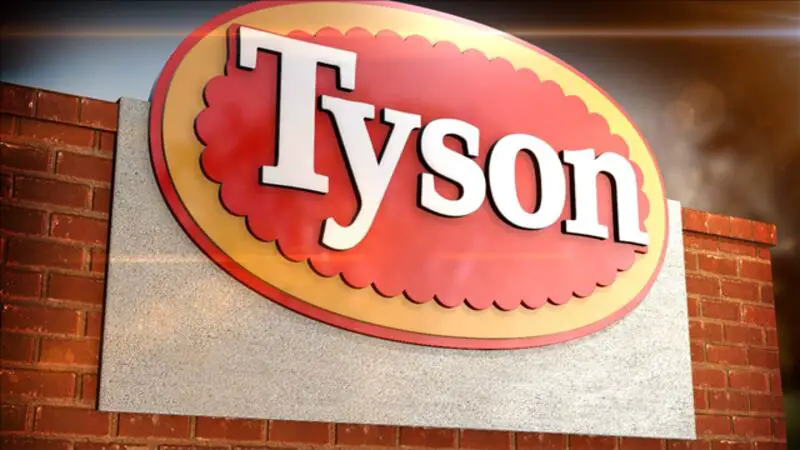Introduction
Recent allegations against Tyson Foods Inc. regarding child labor have shaken the meat processing industry. With the U.S. Department of Labor (DOL) launching an investigation into Tyson’s facilities in Arkansas, the company faces potential consequences that extend beyond legal penalties. This article explores the repercussions of these allegations if they are found to be true, examining the impact on Tyson Foods, labor regulations, and the broader food industry.
Background: The Investigation Into Tyson Foods
Tyson Foods, one of the largest meat processing companies in the United States, is under scrutiny after accusations surfaced that it employed minors at its Arkansas facilities. According to court documents unsealed in October 2024, the DOL is investigating possible violations of the Fair Labor Standards Act (FLSA), which prohibits the employment of children under 16 in hazardous occupations.
The investigation was prompted by tips received over the summer of 2024. A mother overheard minors, some as young as 11, discussing their night shifts at Tyson’s Green Forest plant. These children reportedly worked from 11 p.m. to 7 or 8 a.m., cleaning equipment and handling tasks typically reserved for adults. Such claims, if proven true, could have severe consequences for Tyson Foods and signal a deeper systemic issue in the industry.
Legal and Financial Consequences for Tyson Foods
If Tyson is found guilty of violating child labor laws, the company could face heavy fines and legal penalties. Under the FLSA, businesses can be fined up to $11,000 per violation, which could escalate into millions of dollars, depending on the number of minors involved. In addition to federal fines, the company could be subject to civil lawsuits filed by the families of the affected children, further inflating its financial liabilities.
Beyond monetary penalties, Tyson could face restrictions on government contracts and increased scrutiny from regulators. Federal contracts, which are essential for Tyson’s business, may be jeopardized if the company is found in violation of labor laws. This could impact its revenue streams and market position.
Damage to Brand Reputation
For a company of Tyson’s stature, the public relations fallout from such allegations could be devastating. In today’s consumer landscape, ethical sourcing and labor practices are critical. Brands tied to child labor or exploitative practices often suffer irreparable damage to their reputation. Tyson Foods, a household name in the U.S. and globally, could see a sharp decline in consumer trust and brand loyalty.
Consumers increasingly demand transparency and ethical practices from the companies they support. In the age of social media, news of corporate misdeeds spreads rapidly, and the backlash can lead to boycotts, calls for divestment, and a plummeting stock price. Tyson’s response to these allegations and the steps it takes toward corrective action will play a crucial role in whether it can rebuild its tarnished image.
Impact on the Meat Processing Industry
The repercussions of Tyson Foods’ child labor investigation will not be isolated to the company alone. The broader meat processing industry could face increased scrutiny as regulators and watchdog organizations ramp up efforts to enforce labor laws. Tyson is not the first meat processing company to face such allegations, and the DOL has previously investigated other industry players for similar violations.
If Tyson’s violations are proven, it could spark a wave of investigations into other companies within the sector. Meat processing, with its long history of labor concerns, might become the focal point for regulatory reforms, leading to stricter enforcement of child labor laws and improved working conditions for all employees.
Additionally, the industry may face increased pressure from advocacy groups and consumers to adopt more transparent labor practices. Companies may be forced to re-evaluate their relationships with contractors and affiliates, especially those that handle janitorial services, as previous investigations have shown that some companies outsource tasks to contractors with less oversight, which increases the risk of labor violations.
Stricter Labor Regulations
A significant outcome of this investigation could be the strengthening of child labor regulations and workplace safety standards. The FLSA, though robust, may require modern updates to reflect the current employment landscape. Legislators could push for tighter regulations regarding the use of contractors and stricter penalties for labor violations to deter future incidents.
Moreover, the government might introduce mandatory audits and reporting requirements for companies in industries with a history of labor violations. This would compel companies to actively monitor their supply chains and contractors, ensuring full compliance with federal labor laws.
In the long term, stricter labor regulations could lead to higher operational costs for meat processing companies, as they would need to invest in compliance programs, training, and oversight to avoid future violations. However, this could also create a more ethical and transparent industry that prioritizes worker safety and rights.

Corporate Responsibility and Ethical Sourcing
Tyson Foods, along with other major corporations, may need to overhaul their approach to corporate responsibility. While the company has claimed to follow legal guidelines, the allegations suggest potential gaps in its oversight and auditing processes, particularly in the hiring of minors through contractors or affiliates. If these claims are confirmed, Tyson’s corporate governance structure will likely face significant revisions.
In response to increased scrutiny, Tyson and other companies might adopt stronger ethical sourcing policies, ensuring that labor standards are met not just within their operations but across their entire supply chain. This would involve greater transparency and the implementation of third-party audits to verify compliance with labor laws at every level, from the processing plants to contractors providing services.
Long-Term Effects on the Food Industry
The child labor allegations against Tyson Foods could have ripple effects across the entire food industry. The case underscores the need for more robust oversight and better labor practices within the industry, which has been criticized for unsafe working conditions and labor violations in the past. Companies may be pressured to implement stricter compliance programs to avoid facing similar scandals.
Furthermore, consumer demand for ethically produced food could push more companies to prioritize fair labor practices. Transparency in food production, from farm to table, is becoming increasingly important, and businesses that fail to meet ethical standards may lose market share to competitors that do.
Conclusion: A Turning Point for Labor Practices
The investigation into Tyson Foods marks a crucial moment for labor rights within the meat processing industry. If the allegations of child labor are proven, it could serve as a catalyst for widespread regulatory reform and a shift towards greater accountability. Tyson, along with other companies, will need to embrace more stringent labor practices to rebuild consumer trust and remain competitive in an industry facing heightened scrutiny. In the end, the consequences of these findings could reshape not just Tyson, but the future of labor practices across the food sector.
More recent news: McDonald’s Sues Tyson Foods and Others Over Alleged Beef Price Manipulation: What You Need to Know
Sources include:
- Oatman, Rachael. “DOL Investigates Potential Child Labor at Tyson Facilities.” Meat + Poultry, October 22, 2024.
- Coyne, Andy. “Tyson Foods Under Investigation Over Child Labor Claims.” Just Food, October 17, 2024.
